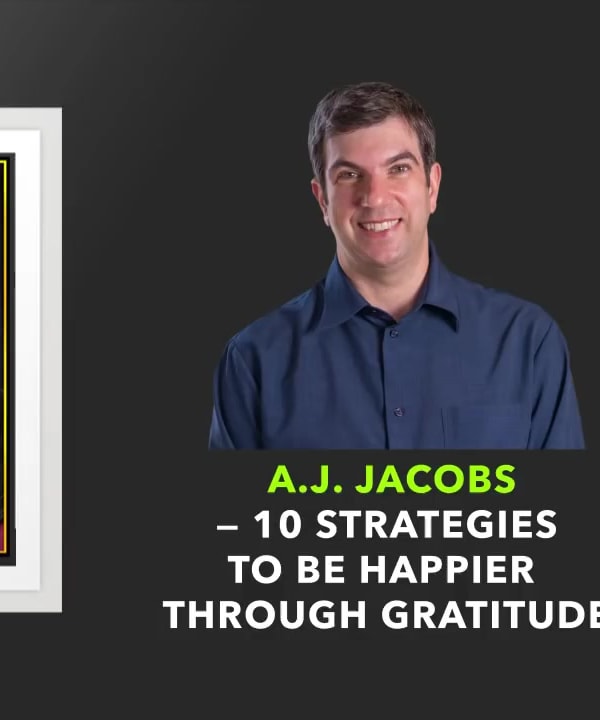Overcoming negative thoughts
Sources:
Tim Ferriss and his guests frequently address the topic of overcoming negative thoughts in their conversations. Here are some key insights and strategies they have discussed:
-
Recognize and Declare War on Negative Bias: A.J. Jacobs explains that humans have a natural tendency towards negative bias, which stems from our evolutionary need to recognize dangers. However, in today's world, this bias tends to contribute to anxiety and depression. Jacobs suggests actively combating this negative bias by acknowledging it and implementing strategies like gratitude practices to shift toward positivity 1.
-
Prepare for and Visualize Negative Outcomes: Dr. Stefi Cohen discusses the importance of being mentally prepared for setbacks. By visualizing potential negative scenarios and planning responses, one can better handle real-life disappointments. This reduces the impact of negative thoughts and reinforces resilience in challenging situations 2.
-
Meditation and Observer Role: Tim Ferriss highlights the value of meditation and practicing the role of an observer to manage negative thoughts. Techniques like morning meditation help cultivate self-awareness, allowing one to step back and objectively analyze their thoughts and emotions. This detachment aids in reducing the influence of negative thoughts 3.
-
Conscious Decision-Making and Self-Discipline: Tim Ferriss and Shay Carl emphasize being conscious of one's thoughts and decisions. By recognizing that all physical actions start as thoughts, one can control and guide their thought patterns to avoid dwelling on negativity. This approach requires self-discipline and meticulous self-reflection 3.
-
Mindfulness and Fear-Based Thoughts: Naval Ravikant discusses a meditation technique where one remains keenly aware of their thoughts, recognizing fear-based narratives. By simply observing these thoughts without judgment, they tend to dissipate, leading to a quieter mind and a greater appreciation of present life 4.
-
Personal Reflections and Managing Fears: Tim Ferriss shares his personal experience of grappling with the fear of being inherently predisposed to depression and unhappiness. He conveys the importance of maintaining a belief that one can overcome these negative thoughts and biases. Accepting the possibility of change and focusing on incremental improvements helps manage these deep-seated fears 5.
By implementing these strategies—such as recognizing negative biases, preparing for setbacks, meditating, making conscious decisions, observing thoughts without judgment, and maintaining a belief in change—one can effectively overcome negative thoughts and foster a more positive mindset.
RELATED QUESTIONS-




